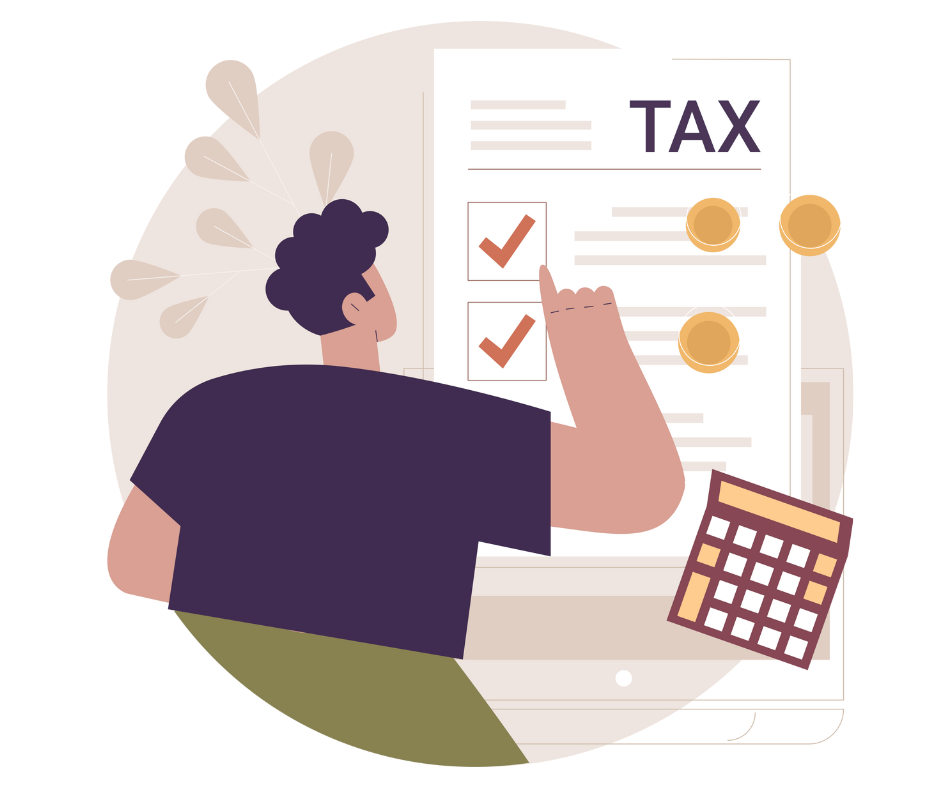Tax season can be a stressful time for many, but it doesn’t have to be. Filing your taxes accurately and on time is essential to avoid penalties, missed refunds, or audits. Yet, many individuals unknowingly make errors that cost them time, money, and peace of mind. Whether you’re a first-time filer or someone looking to refine your approach, understanding the pitfalls of tax filing can make all the difference.
In this article, we’ll explore 5 common tax-filing mistakes and provide actionable steps to avoid them, ensuring a smooth and hassle-free tax season.
1. Missing Tax Deadlines

One of the most common mistakes taxpayers make is failing to meet tax deadlines. Missing these deadlines can result in penalties and interest charges on any unpaid taxes, further complicating your financial situation.
Why It Happens
- Putting off or underestimating the amount of time needed to collect the essential paperwork.
- Lack of awareness of filing deadlines.
- Waiting until the last minute to file, which can lead to errors or system overloads on e-filing portals.
How to Avoid It
- Mark Important Dates: Note key tax deadlines on your calendar or use reminders on your smartphone. For example, the deadline for individual tax filing in India is typically July 31, unless extended.
- Set Early Reminders: Begin gathering documents and preparing your return at least a month in advance.
- Consider Filing Early: Filing early reduces stress and allows more time to address potential errors.
- File for an Extension: If you need more time to prepare your return, file for an extension. However, remember that an extension doesn’t delay your payment obligations.
Quick Tip: Tax-filing software often provides automatic reminders for upcoming deadlines, helping you stay on track.
2. Incorrect or Incomplete Information

Errors in basic personal information can derail the entire filing process. This includes mistakes in your name, PAN (Permanent Account Number), Aadhaar, or bank account details.
Why It Happens
- Typographical errors during manual entry.
- Outdated personal information on official records.
- Lack of attention to detail when reviewing the return.
How to Avoid It
- Double-Check Personal Details: Ensure that your name matches exactly as it appears on your PAN and Aadhaar cards.
- Verify Bank Account Details: Accurate bank details are critical for receiving refunds without delay.
- Review Before Submission: Take time to thoroughly review your tax return before filing.
Example: A taxpayer once faced refund delays due to a mismatch between the name on their PAN and Aadhaar. By linking and verifying these details on the government’s e-filing portal, the issue was resolved.
3. Failing to Report All Income
Not reporting all sources of income is another common mistake that can lead to scrutiny by the Income Tax Department. This includes both primary and secondary income streams.
Why It Happens
- Lack of awareness about what constitutes taxable income.
- Overlooking small or irregular income sources, such as freelance earnings or interest from savings accounts.
- Assuming that income from digital platforms or foreign sources doesn’t need to be reported.
How to Avoid It
- Maintain Comprehensive Records: Keep track of all income sources throughout the year.
- Use Form 26AS or AIS: These documents provide a consolidated summary of income reported to the tax authorities.
- Seek Expert Advice: If unsure about taxable income, consult a tax advisor or use trusted tax-filing software.
Did You Know? Income earned through platforms like YouTube, freelancing websites, or even cryptocurrency trading must be reported.
4. Ignoring Eligible Deductions and Exemptions
Taxpayers often miss out on deductions and exemptions, resulting in higher tax liabilities. These benefits can significantly reduce taxable income if claimed correctly.
Why It Happens
- Lack of knowledge about available deductions under sections like 80C, 80D, and 80E.
- Failure to maintain proper documentation for eligible expenses or investments.
- Overlooking less common exemptions, such as those for donations or educational expenses.
How to Avoid It
- Educate Yourself: Familiarize yourself with deductions such as ELSS (Equity Linked Savings Scheme), PPF (Public Provident Fund), health insurance premiums, and education loan interest.
- Maintain Records: Keep receipts and proof of investments or expenditures.
- Use Technology: Tax-filing software often highlights potential deductions based on your income and expenses.
Pro Tip: Donations to eligible charitable organizations under Section 80G not only benefit society but also help you save taxes.
5. Filing Taxes Without Proof or Documentation

Submitting your tax return without maintaining proper documentation can create issues during audits or when discrepancies arise.
Why It Happens
- Rushing to meet deadlines without organizing documents.
- Misplacing receipts or investment proofs over the course of the year.
- Relying solely on digital records without creating backups.
How to Avoid It
- Organize Early: Start gathering documents like Form 16, investment proofs, and loan certificates well before the deadline.
- Create Digital Backups: Scan and store important documents in cloud storage for easy access.
- Retain Records: Keep all tax-related documents for at least six years, as they may be required for future reference.
Bonus Advice: Investing in secure cloud storage solutions ensures your tax records are safe from physical damage or loss.
Additional Tips for Error-Free Tax Filing

- Use Trusted Tax-Filing Software: Modern software simplifies the process and reduces the likelihood of errors. Popular platforms include ClearTax and the Income Tax Department’s official e-filing portal.
- Consult a Professional: If your taxes are complex, consider hiring a Chartered Accountant (CA) for expert guidance.
- Stay Updated: Tax laws change frequently. Keeping up with the latest rules and regulations ensures compliance.
- Avoid Common Myths: For instance, many believe that filing taxes isn’t necessary if their income is below the exemption limit. However, filing a return can still be beneficial for claiming refunds or establishing income proof.
Also Read:- Unlocking ELSS Tax Saving Benefits: A Smart Investment Choice
Conclusion
Filing your taxes accurately and on time is critical to avoiding penalties and maximizing refunds. By steering clear of these 5 common tax-filing mistakes, you can simplify the process and ensure compliance with tax regulations. From meeting deadlines to reporting all income, claiming deductions, and maintaining proper documentation, each step contributes to a smoother experience.
Ready to take control of your taxes? Start early, stay organized, and leverage the tools and resources available to you. Have questions or need assistance? Drop your queries in the comments below or explore our related articles for more insights.








